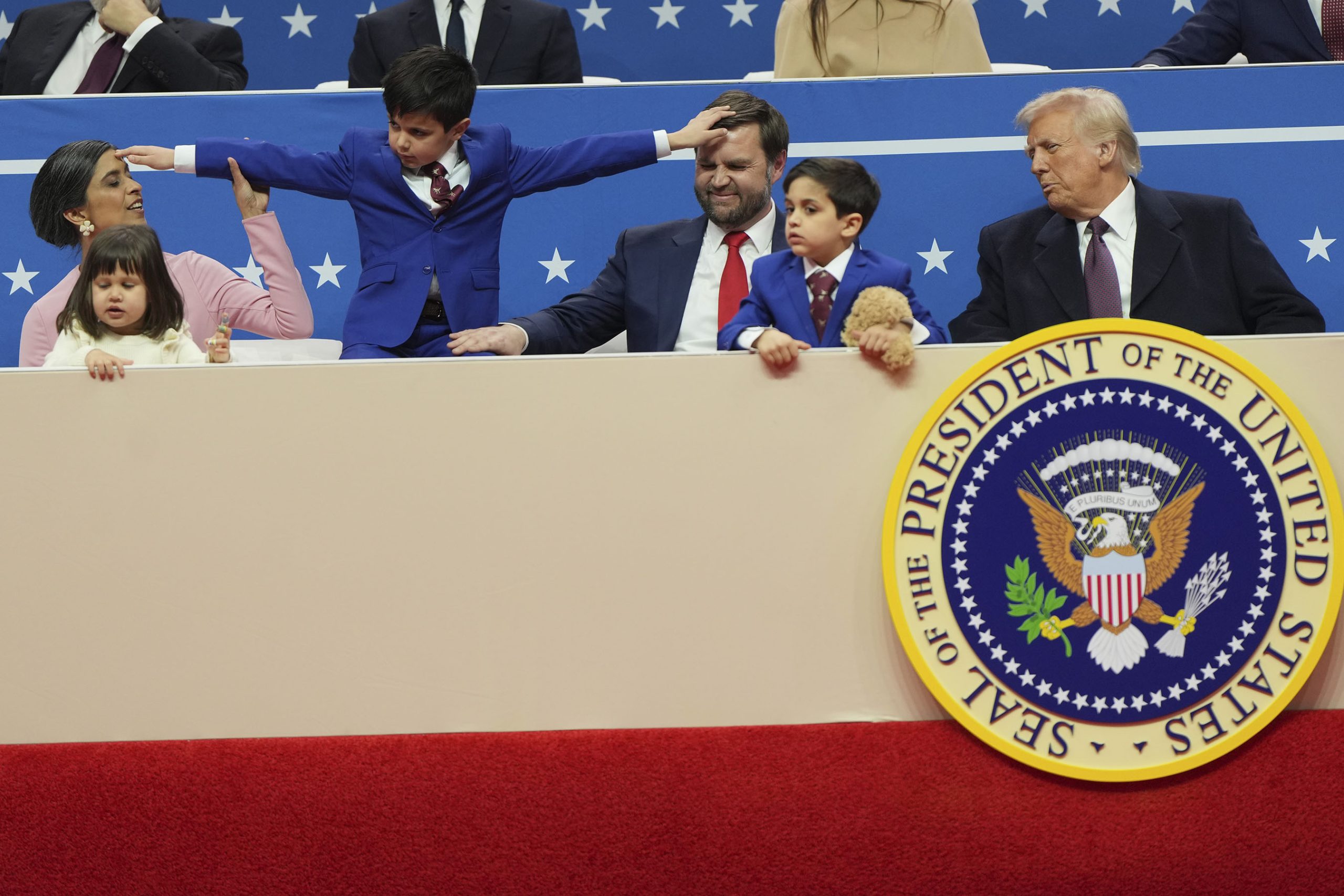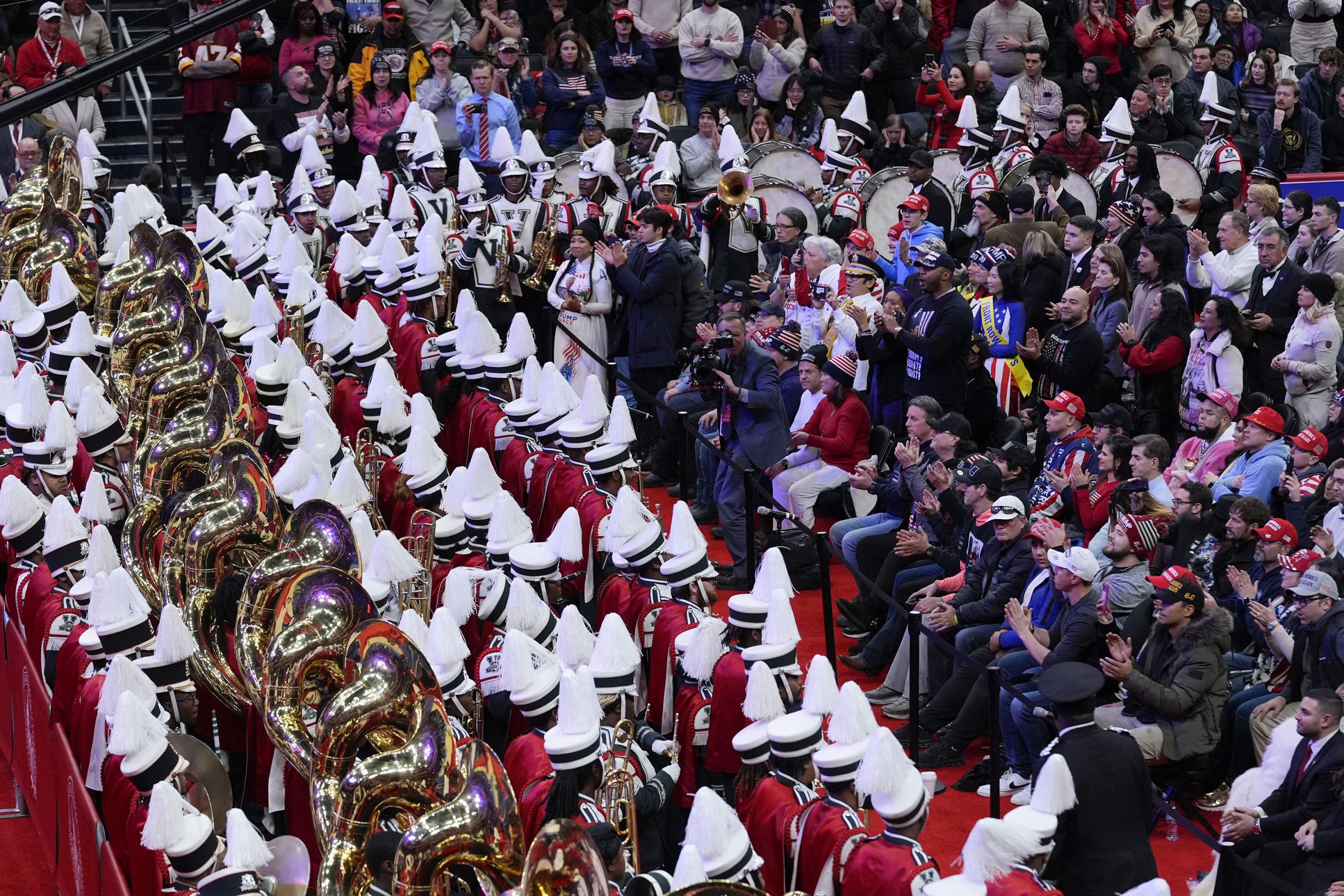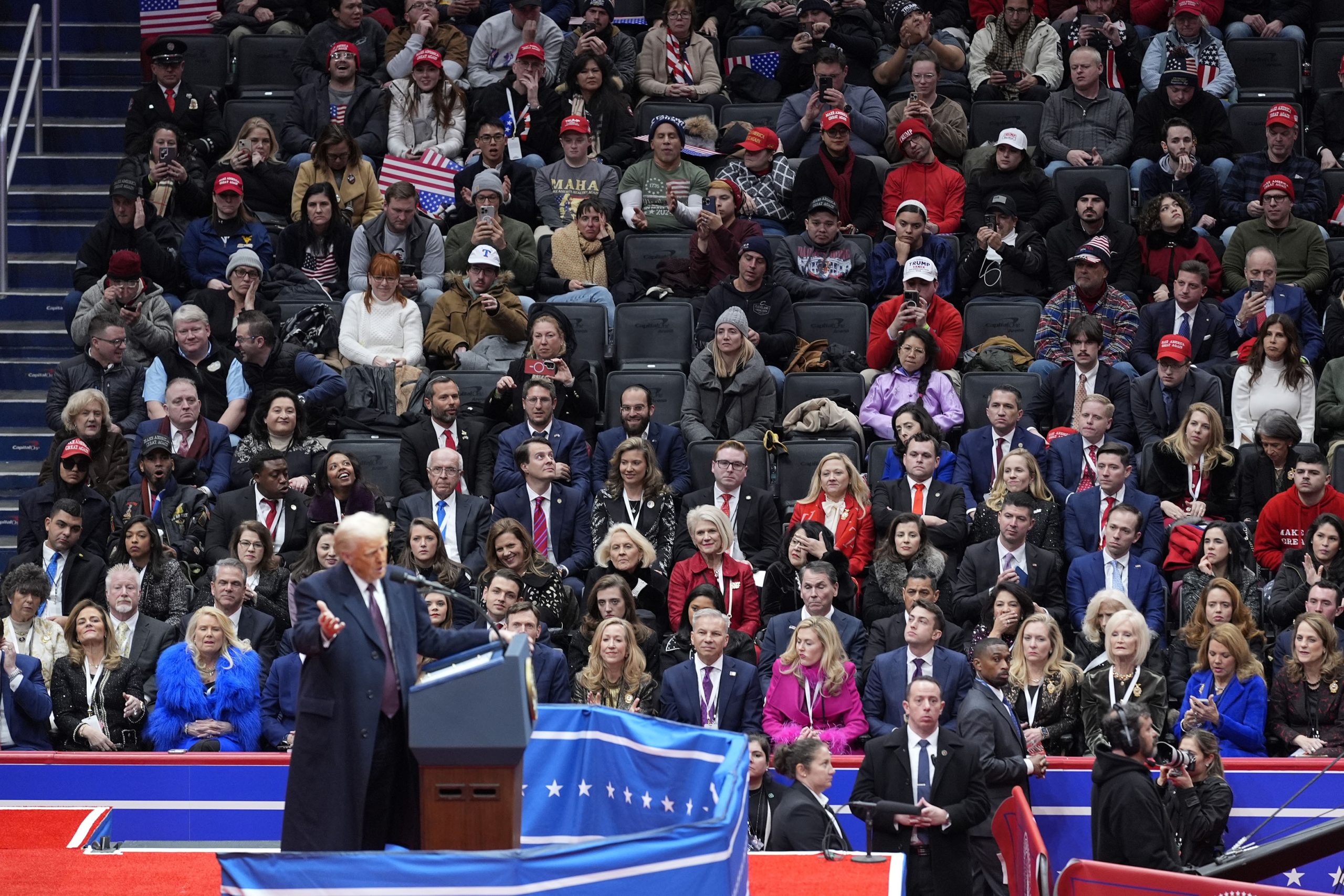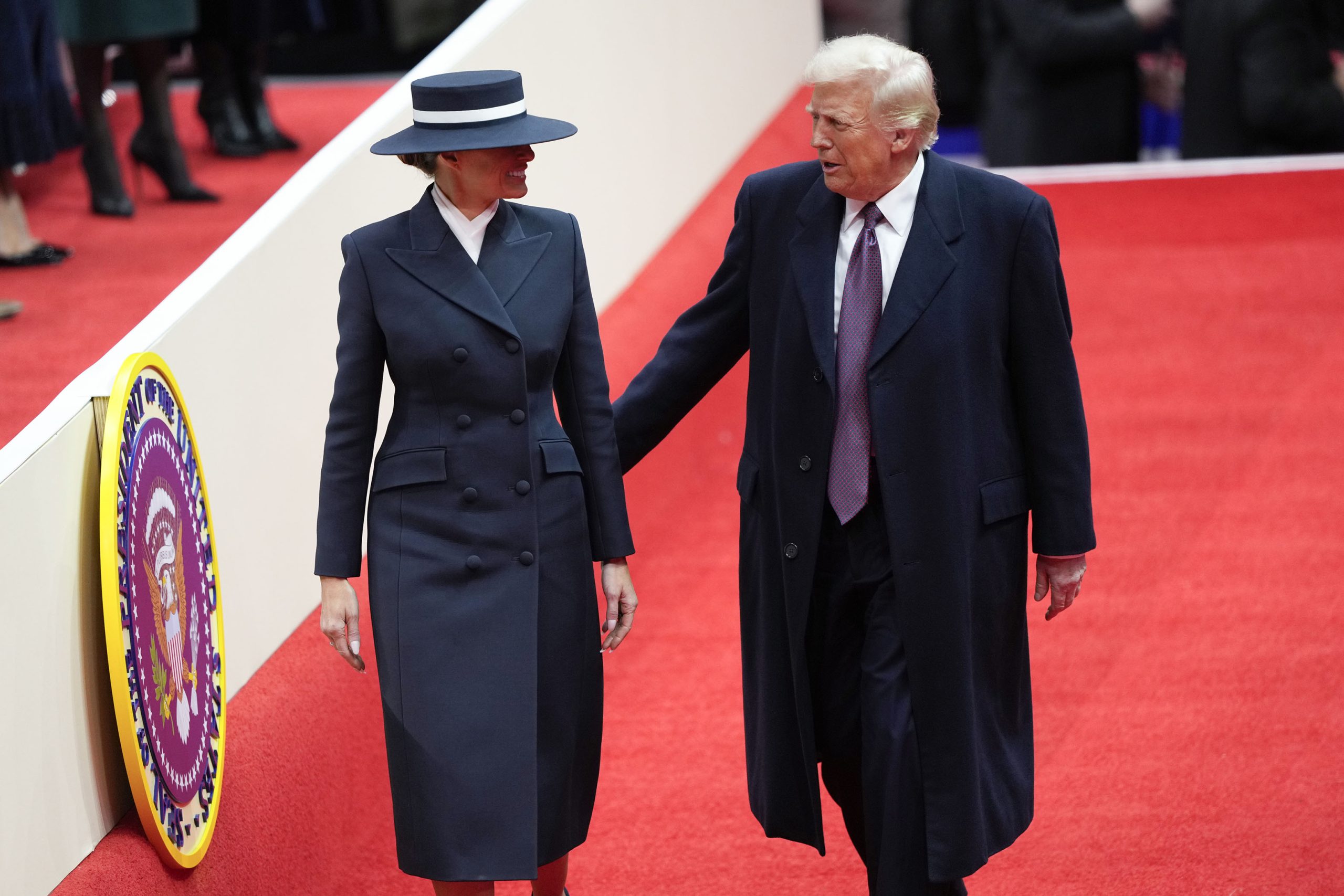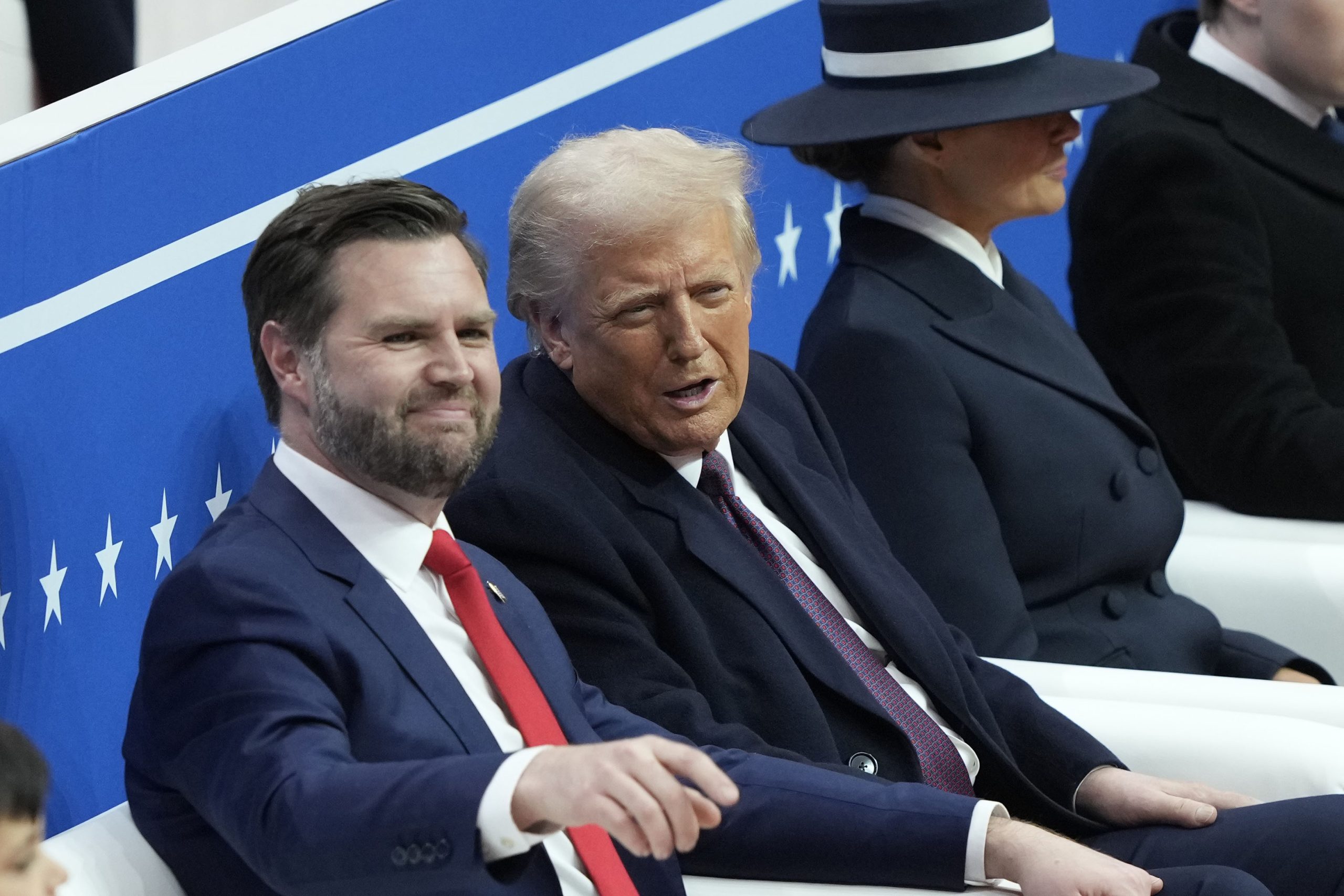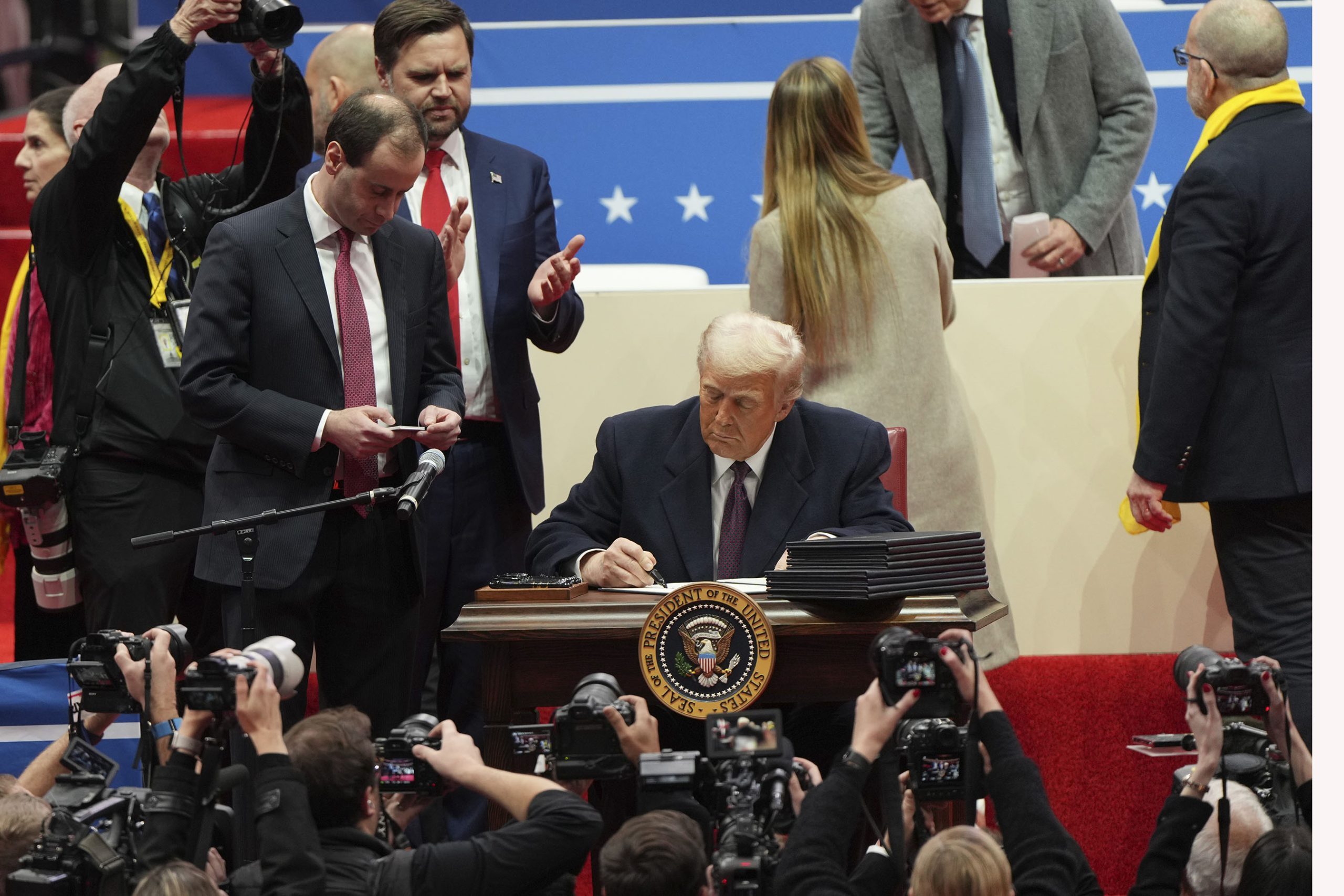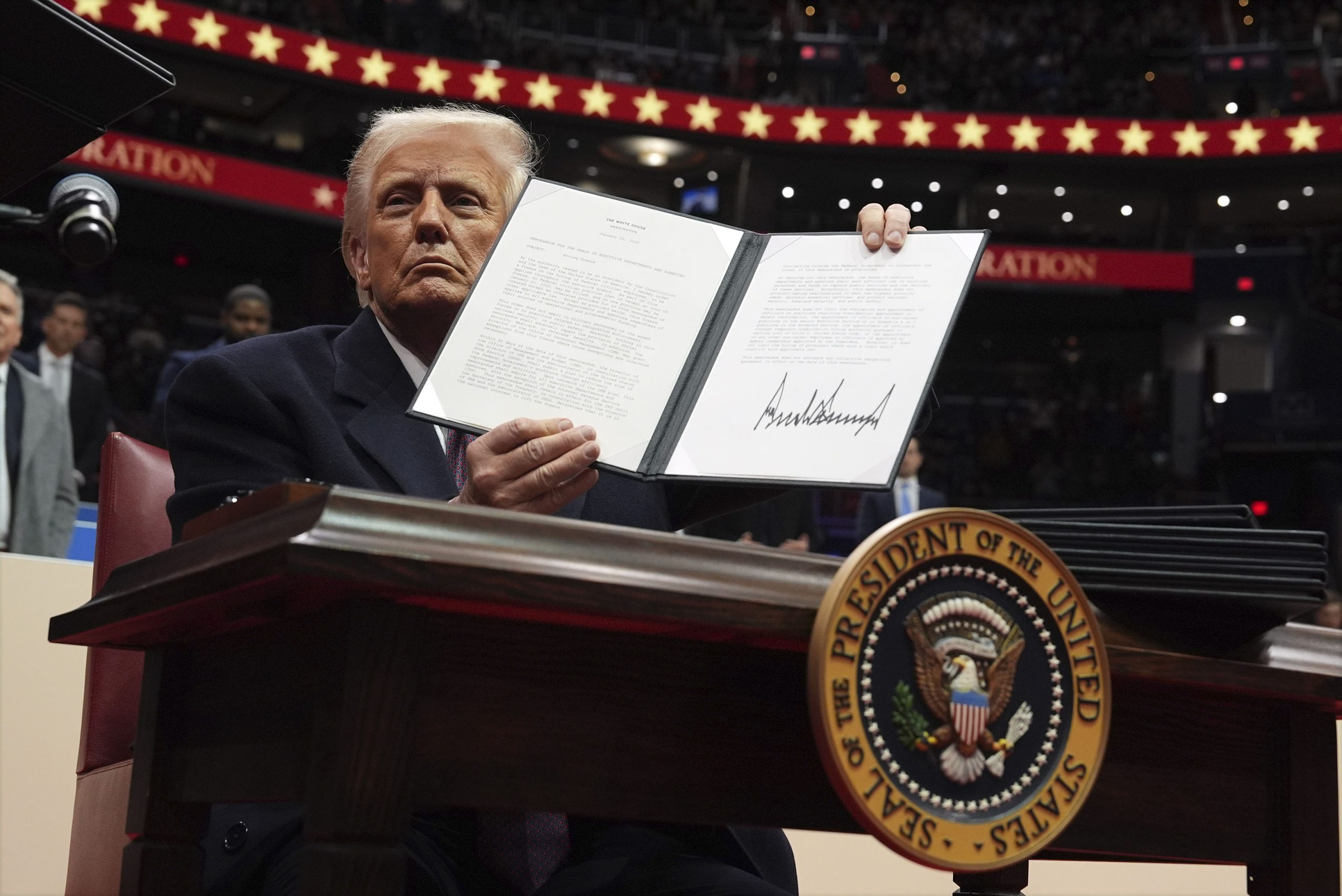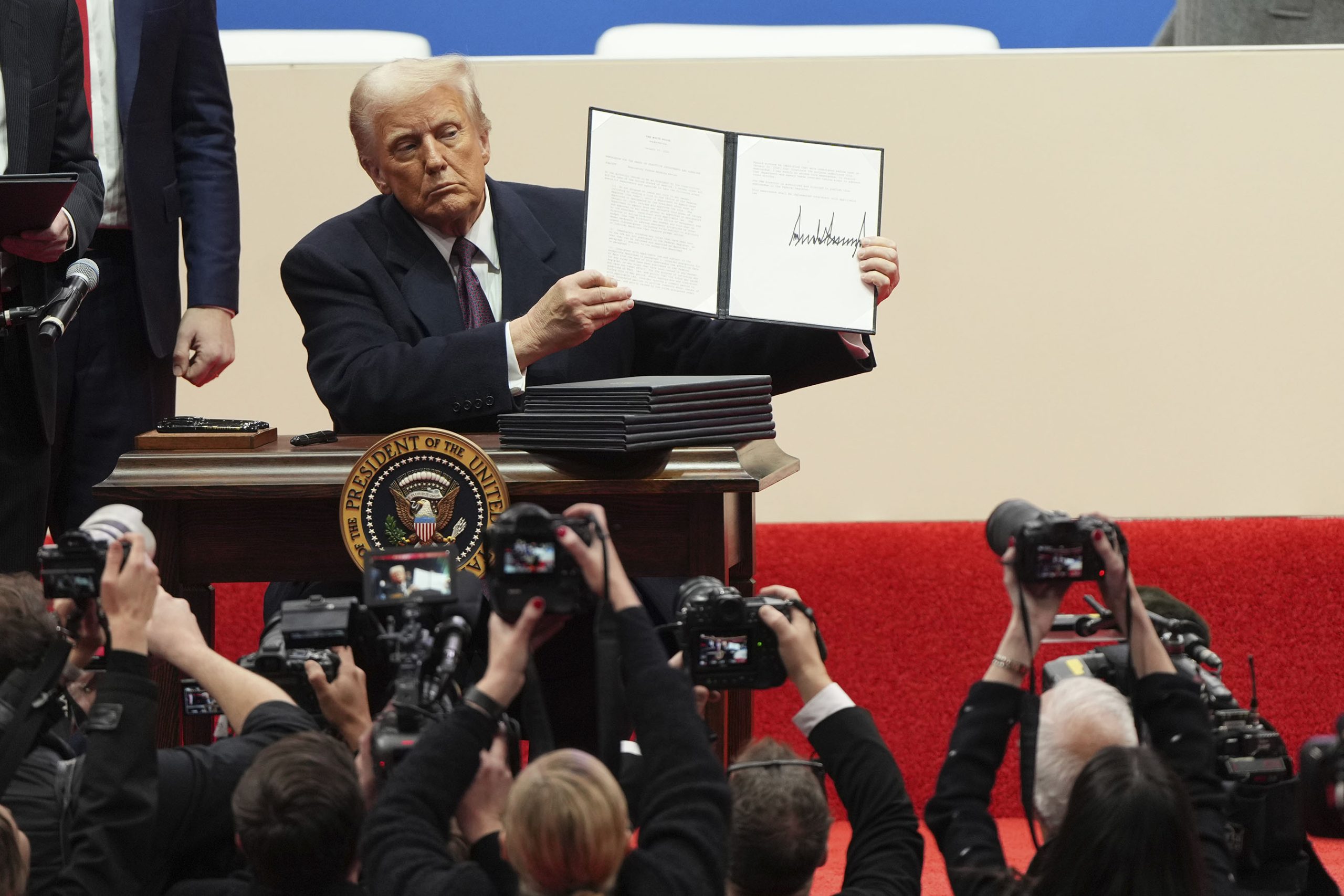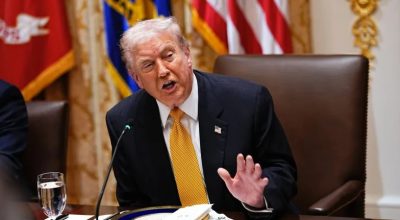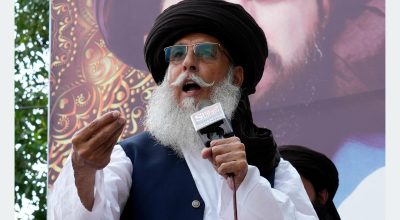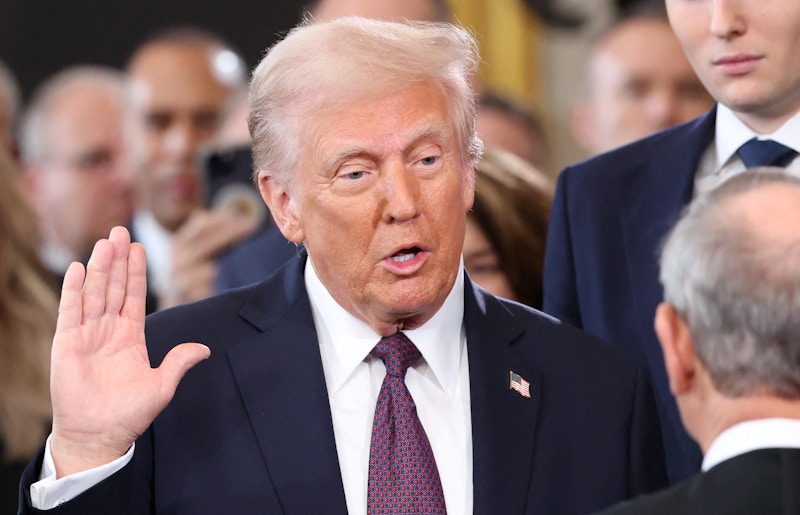
WASHINGTON, Jan 20 (AP) — Donald Trump issued pardons for participants in the Jan. 6 riot at the U.S. Capitol, including those convicted of assaulting police, in his first official action after returning to the White House as the country’s 47th president on Monday.
The pardons of about 1,500 people fulfilled Trump’s promise to release supporters who tried to help him overturn his election defeat four years ago. Another 14 people had their sentences commuted.
“These are the hostages,” he said while signing the paperwork in the Oval Office. Trump said he hopes many are freed shortly.
Donald Trump has been sworn in as the 47th President of the United States, setting out to reshape the country’s institutions.
He signed his first round of executive orders at his rally at the Capital One Arena, including withdrawing from the Paris climate treaty and requiring that federal workers return to work in person full time.
Trump has signed an executive order temporarily suspending all U.S. foreign assistance programs for 90 days pending reviews to determine whether they are aligned with his policy goals.
It was not immediately clear how much assistance would be initially affected by the order. Funding for many programs has already been appropriated by Congress and obligated to be spent, if not already spent.
The majority of U.S. adults think local police in their community should cooperate with federal immigration authorities to deport people who are in the country illegally at least some of the time, according to a January AP-NORC poll. Americans are more likely to say cooperation should happen in some cases but not others than they are to support cooperation across the board.
About 4 in 10 Americans say local police “should always cooperate,” and about half say they “should cooperate in some cases.” Only about 1 in 10 say the local police in their community should never cooperate in these circumstances.
Republicans are especially likely to want cooperation all of the time. About two-thirds of Republicans say local police should always cooperate. Only about one-third of independents and one-quarter of Democrats agree.
One of Trump’s more impactful orders on immigration simply restores what was in place when he took office in 2017.
Trump wants to end federal grants to “sanctuary” jurisdictions, or state and local governments that limit cooperation with immigration authorities. The White House maintains that sanctuaries are breaking a law that forbids interfering with federal law enforcement officers.
He also wants negotiations with state and local governments to deputize local police to enforce immigration laws, known as 287(g) agreements after a section of a 1996 immigration law.
The order restores deportation criteria to pursue everyone in the country illegally, not just those with serious criminal records, those deemed national security or public safety threats, and those who recently crossed the border.
